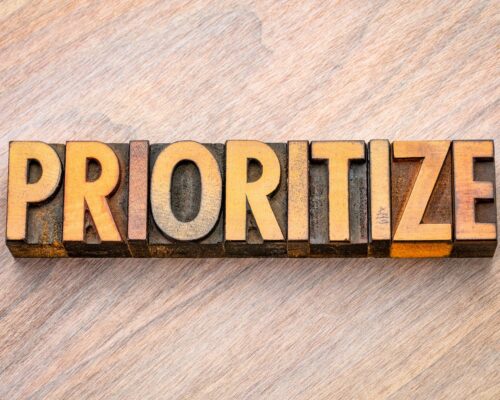Can tracking your time change your life? It might be ambitious, but the transformative power of effective time management should not be underestimated.
Yes, tracking your time can indeed change your life. Taking control of your hours and minutes can boost your productivity, reduce stress, and ultimately increase your overall happiness.
In an era where ‘busy’ has become the norm, tracking time and managing it well has become more crucial than ever.
It’s not about filling every minute with productivity. But more importantly, understanding where your time goes and using this knowledge to make informed decisions.
Let’s dive deeper into some methods you can use to keep track of your time. It can make a difference in how you spend your time overall.
Note: We may include products or services that will be helpful to our readers. This post may contain affiliate links. For more information, please review the affiliate disclosure page.
- Understanding & Acknowledging Time Management
- Method 1: Time Tracking Apps & Software
- Method 2: The Pomodoro Technique
- Method 3: Time Blocking
- Method 4: Prioritization Matrix
- Method 5: Regular Breaks and Mindful Working

Can tracking your time change your life?
Absolutely, tracking your time can significantly change your life. It empowers you to understand how your hours are spent, enables you to manage and optimize your activities for maximum productivity, and can ultimately lead to improved work-life balance and overall life satisfaction.
Understanding and acknowledging time management
But why is managing time so important?
Time is our most valuable resource; unlike money or possessions, we can never get back once it’s spent.
In the workplace, poor time management can result in missed deadlines, lowered efficiency, stress, and burnout.
On the other hand, good time management skills can lead to higher productivity, better work quality, decreased stress, and a healthier work-life balance.
With this in mind, let’s explore five methods for effectively tracking and managing your time at work.
Method 1: Time-tracking apps and software
The first method involves using digital tools to your advantage.
Time-tracking apps and software can provide visual reports of how you spend your time, making it easier to identify trends, track productivity, and stay on top of deadlines.
Some popular and effective options include Toggl, RescueTime, and Time Doctor.
I’ve done reviews on both Rescuetime and Time Doctor– both of which are excellent tools to use. Check out each of them to learn more about how they operate.
When choosing a time-tracking app or tool, consider factors like ease of use, customization options, and integration with other tools you use regularly.
Method 2: The Pomodoro Technique
Next, consider the Pomodoro Technique, a time management method developed by Francesco Cirillo in the late 1980s.

This technique involves breaking your workday into 25-minute focus periods (or “Pomodoros”), separated by five-minute breaks.
After four Pomodoros, take a longer break of 15-30 minutes.
The Pomodoro Technique can help maintain focus, prevent burnout, and enhance productivity by encouraging work in short, highly productive bursts.
A relevant article from notimekillers.com
Read next on “How To Do The Pomodoro Technique: Is It Effective For Time?” to learn more about how this time management method works.
Is time management a problem?
Indeed, time management is a pervasive problem for many people today. The demands of modern life and numerous distractions and obligations make it challenging for individuals to effectively manage and prioritize their time, often leading to stress and decreased productivity.
Method 3: Time blocking
Time blocking is another useful strategy for managing your time.
This method involves dividing your day into blocks of time, each dedicated to a specific task or group of tasks.
This approach can be particularly effective in managing large workloads, as it allows you to focus entirely on one thing at a time.
Remember, priorities can change, and your time blocks should be flexible enough to accommodate these changes.
A relevant article from notimekillers.com
Read next on “How To Do Time Blocking: Create Your Own Schedule With Ease” to learn how to block time periods in your daily schedule.
Method 4: Prioritization matrix
Another method is using a prioritization matrix, which allows you to manage your time based on the urgency and importance of your tasks.
This matrix has four quadrants that categorize tasks as urgent and important, important but not urgent, urgent but not important, and neither urgent nor important.
By properly prioritizing your tasks, you can ensure that your attention and effort are focused on the tasks that truly matter and need to be done first.

Method 5: Regular breaks and mindful working
Lastly, don’t forget the importance of regular breaks and mindful working.
Breaks are not a waste of time; they are crucial for maintaining high levels of productivity and focus.
During these breaks, engage in activities that refresh and relax your mind, like a short walk or light stretching.
Mindful working means being fully present and engaged in the task at hand, not multitasking or letting your mind wander.
By being mindful, you can get more done in less time and produce higher-quality work.
Final Words
In conclusion, tracking your time can be a game-changer in your professional and personal life.
It may not seem easy at first, but by gradually implementing these methods, you will begin to see improvements in your productivity, stress levels, and overall work-life balance.
Remember, there’s no one-size-fits-all approach. Experiment with these different methods and find what works best for you.
Managing your time effectively is not about being perfect; it’s about making better decisions that can lead to a more productive and fulfilling life.
Recommendations
For further reading and resources on time management, consider books like Eat That Frog! by Brian Tracy and Getting Things Done by David Allen.
Check out the latest price on Amazon
Check out the latest price on Amazon
Your journey towards better time management and a better life starts now. Make every moment count!
Your Turn: How can tracking your time change you for the better?
I want to get some feedback on this topic. Here’s some food for thought:
- Which of these time-tracking methods resonated with you the most and why?
- How have your own experiences with time management shaped your personal or professional life?
- What steps will you take to improve your time management skills, and how do you anticipate these changes will impact your life?
Feel free to share your thoughts by leaving a comment below. I look forward to reading your thoughts and I’ll gladly respond promptly.
If you got value from this article, please bookmark this website to visit later for new posts every week. Spread the word to others. Sharing is caring! To get more of this type of content, you won't want to miss out my daily email letters. These are worth some golden nuggets and best tips to help you in your business. Sign up today! Count me in on the daily letters via email! For the latest videos that come out every week, subscribe to the YouTube channel. Also, be sure to check out our new space on Twitter X! YouTube Twitter (X) Medium Profile
Eric is the owner and chief editor of notimekillers.com. He takes great pride in helping people manage their time and grow their businesses. Eric is a firm believer in financial and time freedom, as he believes in financial independence and taking ownership of your time. “Time is your most important asset. It can be your best friend or worst enemy. How you use your time can shape the future you desire to have.” In his leisure time, Eric loves to write and read whenever possible. He enjoys going for long walks outdoors while doing in-home workout videos every week. You can also connect with Eric via LinkedIn.

